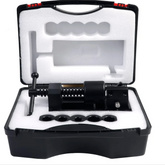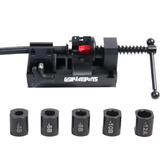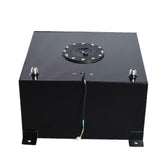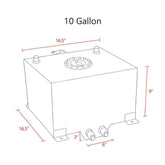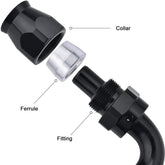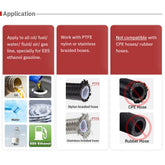The condenser is a vital part of your vehicle's air conditioning system. Mounted at the front of the engine compartment, the condenser plays a crucial role in cooling the refrigerant or coolant that circulates through the AC system.
The Air Conditioning Process
To understand the condenser's function, it helps to first look at how air conditioning works in a car. The AC system goes through a refrigeration cycle to provide cooled air to the cabin. It consists of the compressor, condenser, receiver-drier or accumulator, expansion valve, and evaporator.
The compressor pumps refrigerant in vapor form to the condenser. As warm vaporized refrigerant from the compressor passes through the condenser, it is cooled by air flowing across the condenser fins. This condenser airflow is provided by the car's forward movement.
The refrigerant vapor condenses into a high pressure liquid within the condenser, releasing its heat to the outside air. The condenser fins help dissipate this heat efficiently. The liquid refrigerant then flows to the receiver-drier or accumulator.
The receiver-drier filters contaminants and moisture while the accumulator prevents liquid refrigerant from reaching the compressor. Refrigerant then passes through the expansion valve, where a pressure drop causes sudden cooling.
It next enters the evaporator inside the cabin, where it absorbs and removes heat from the air inside the vehicle. This cooled air is then blown into the cabin interior to cool it down. The evaporator turns the refrigerant back into a low pressure vapor, which returns to the compressor to repeat the refrigeration cycle.
The Condenser's Critical Role
As you can see, rapid heat transfer and condensation of refrigerant are crucial functions inside the condenser unit. Without an operating condenser, the AC system cannot provide any cooling. The compressor would pump hot gaseous refrigerant with nowhere for it to condense.
Some key points about the condenser:
It provides efficient heat dissipation and surface area for refrigerant condensation via its fins and tubing.
Condenser size and airflow across it must match the compressor capacity to work well. Insufficient condenser cooling capacity will lead to poor AC performance.
Keeping the condenser clean is essential so airflows freely across its fins during vehicle movement. Dirt, debris and bugs can block airflow and insulate the condenser tubing.
The condenser, expansion valve, and evaporator must have matched capacities. If the condenser is too small, refrigerant will not shed heat fast enough. The evaporator then gets less liquid refrigerant and provides less cooling.
Condenser Cleaning Tips
To maintain peak AC system performance, the condenser needs to be cleaned periodically. Here are some steps to safely clean your condenser:
Wait for the engine to cool - Let the vehicle sit about an hour after running so the condenser fins cool down. Engine heat can harm you and warp the fins.
Use protective gloves - Wear thick work gloves to protect your hands from condenser fins which can be very sharp.
Rinse with low pressure water - Use a garden hose on light spray setting first to remove loose dirt and bugs. Don't bend or damage fins.
Use a condenser cleaner spray - Apply a foaming cleaner made for condensers. Avoid soaps which can leave residue. Let it soak for 5-10 minutes.
Rinse again - Use medium pressure water and aim between fins to wash out debris. Repeat cleaning if needed.
Dry and clean off debris - Wipe excess water off with a microfiber cloth and carefully remove any leaves or bugs.
Check connections - Ensure condenser fittings and lines are intact, with no leaks or damage.
Check air flow - Start engine and turn AC on max. Feel condenser outlet air to ensure adequate warm airflow.
Consider professional cleaning - For really dirty condensers or for deep between-fin cleaning, have it professionally cleaned.
Proper regular condenser maintenance helps your AC blow cold air when you need it most. Following these best practices for cleaning your condenser will beat the heat all summer long. Consult your owner's manual as well for any specific instructions for your vehicle.

